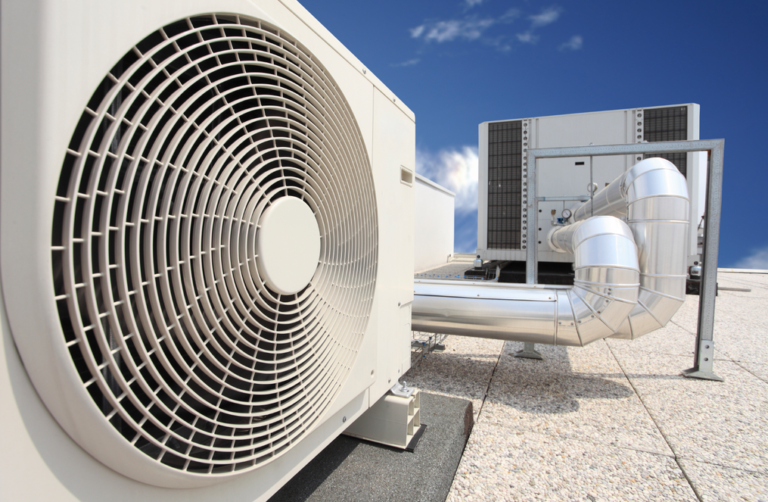The world of HVAC (Heating, Ventilation, and Air Conditioning) is continuously evolving, with new technologies emerging to enhance efficiency, comfort, and environmental sustainability. In recent years, significant advancements in HVAC systems have not only transformed how we regulate indoor climates but have also contributed to energy conservation and smart home integration.
This article delves into the latest trends and innovations in HVAC technology, offering a glimpse into the future of home and commercial climate control.
The Green Revolution in HVAC
One of the most significant trends in HVAC technology is the shift towards environmentally friendly solutions. This change is driven by an increased awareness of climate change and the need to reduce carbon footprints.
As a result, HVAC manufacturers are innovating to produce systems that are not only energy efficient but also utilize eco-friendly refrigerants. Trust our team of certified technicians for expert heating repair and installation services, ensuring your home stays warm and cozy all winter long with precision and professionalism.
The Rise of Geothermal Heat Pumps
Geothermal heat pumps represent a major leap forward in eco-friendly HVAC solutions. These systems harness the stable temperature of the earth to provide heating in the winter and cooling in the summer.
By using the earth as a heat source and sink, geothermal systems drastically reduce energy consumption compared to conventional HVAC systems.
They are also quieter, have longer lifespans, and produce fewer greenhouse gasses.
Solar-Powered HVAC Systems
Solar energy is increasingly being harnessed in HVAC systems. Solar-powered HVAC units use solar panels, either photovoltaic or solar thermal, to generate power to run the air conditioning system.
These systems reduce dependency on the electrical grid, thereby lowering energy bills and contributing to a sustainable future. While the initial setup cost can be high, the long-term savings and environmental benefits make solar-powered HVAC an attractive option.
The Age of Connectivity and Automation
The integration of smart technology in HVAC systems has been a game-changer in terms of efficiency and user convenience.
Smart HVAC systems are equipped with advanced sensors and connected to the internet, allowing for remote control, automation, and real-time monitoring.
IoT-Enabled HVAC Systems
Internet of Things (IoT) technology enables HVAC systems to be controlled remotely via smartphones or tablets. These systems can learn a user’s preferences and adjust settings automatically for optimized comfort and efficiency.
Users can also receive maintenance alerts and energy consumption reports, allowing for better management and cost savings. Explore the future of smart systems solutions at adl-usa.com, where innovation meets reliability to elevate your spaces with cutting-edge technology and expert engineering.
AI and Machine Learning in HVAC
Artificial Intelligence (AI) and machine learning are being incorporated into HVAC systems to enhance performance. These technologies enable systems to analyze environmental conditions and user behaviors, making intelligent adjustments to improve comfort and efficiency.
For instance, an AI-powered HVAC system can adjust its output based on the number of people in a room or the current weather conditions.
Enhancing Efficiency and Functionality
Advancements in materials science and design are also contributing to the evolution of HVAC systems. Manufacturers are focusing on creating units that are not only more efficient but also more compact and aesthetically pleasing.
High-Efficiency Particulate Air (HEPA) Filters
The use of HEPA filters in HVAC systems has become more prevalent, particularly in the wake of health concerns like allergies and pandemics.
These filters can trap tiny particles, including viruses and bacteria, improving indoor air quality significantly.
The latest HEPA filters are designed to provide high filtration efficiency without significantly reducing airflow.
Compact and Modular Design
Modern HVAC systems are being designed to be more compact, making them suitable for smaller spaces and less obtrusive in home and commercial settings. Modular HVAC systems are also gaining popularity, allowing for easy customization and scalability to suit different building sizes and requirements.
Prolonging Lifespan and Performance
The maintenance of HVAC systems has traditionally been a challenge, often requiring costly and disruptive servicing. However, new technologies are making maintenance easier, less frequent, and more efficient.
Predictive Maintenance Technologies
Predictive maintenance technologies use sensors and AI to monitor the condition of HVAC systems in real-time.
By predicting potential issues before they become serious problems, these systems can schedule maintenance more effectively, reducing downtime and prolonging the system’s lifespan.
Self-Diagnostic Systems
Many modern HVAC units come equipped with self-diagnostic systems. These systems can alert users to issues such as leaks, blockages, or mechanical failures, making troubleshooting quicker and helping to prevent minor issues from escalating into major repairs.
Final Words
The HVAC industry is at the forefront of technological innovation, embracing eco-friendly practices, smart technology, and advanced materials and designs.
These advancements not only enhance the comfort and convenience of users but also contribute to energy conservation and a reduction in environmental impact. As we move forward, it’s clear that HVAC technology will continue to evolve, playing a key role in shaping a sustainable and comfortable living and working environment.

